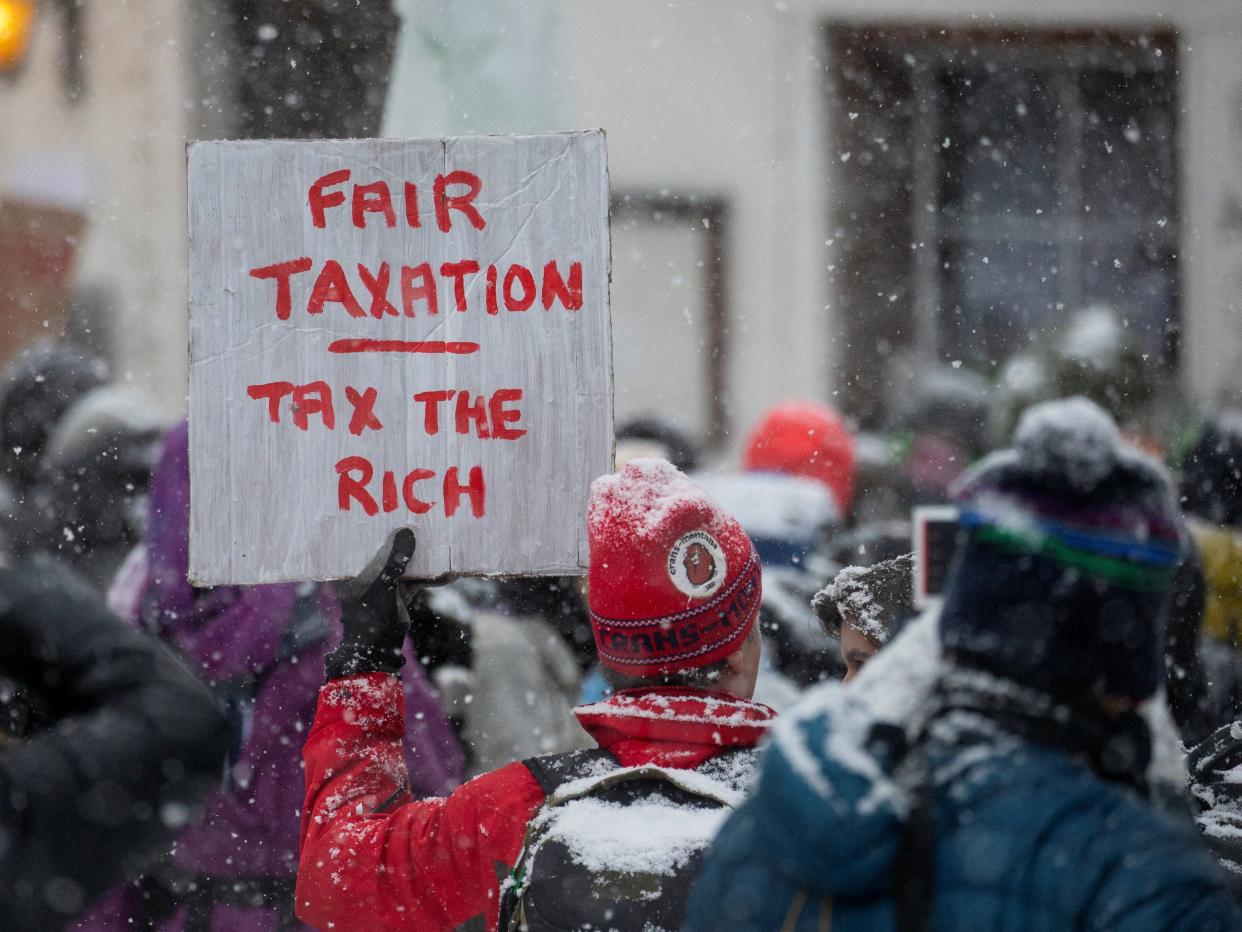The top 1% has garnered two-thirds of the $42 trillion new wealth created since 2020, per UK non-profit Oxfam.
But at least 1.7 billion workers live in countries where inflation outpaces wages.
Oxfam's calling on governments to impose much higher taxes on the super-rich to redistribute wealth.
Governments around the world need to reduce the number of ultra-wealthy people by adopting "billionaire-busting policies," Oxfam said in a Monday report.
The UK-based group of non-profits said in the report the richest people have grabbed nearly two-thirds of $42 trillion in new wealth created since 2020 — when the COVID-19 pandemic started. That's twice as much as what the rest of the 99% managed to amass in new wealth, Oxfam said citing Credit Suisse data.
As a reflection of this growing wealth disparity, at least 1.7 billion workers are living in countries where inflation is outpacing wages, according to Oxfam's analysis of data from Eurostat, Trading Economics and consultancy Korn Ferry.
Oxfam is now advocating to halve the wealth and number of billionaires between now and 2030 through taxation and other moves in order to get to a "fairer, more rational distribution of the world's wealth."
It's also seeking a permanent increase in the taxes of the richest to at least 60% of their income — in particular, Oxfam is calling on governments to raise taxes on capital gain.
"We need to do this for innovation. For stronger public services. For happier and healthier societies. And to tackle the climate crisis, by investing in the solutions that counter the insane emissions of the very richest," Gabriela Bucher, the executive director of Oxfam International, said in the report.
Just four cents of every tax dollar come from wealth taxes, according to Oxfam's analysis based on data from the Organisation for Economic Co-operation and Development.
Most of the income of wealthy people are also "unearned" and are derived from returns on their assets — but it's taxed at an average of 18% — just over half of the average top tax range on wages and salaries, according to Oxfam's study.
"Taxing the super-rich is the strategic precondition to reducing inequality and resuscitating democracy," Bucher said in the report.
Oxfam published its report just as the World Economic Forum commences on Monday in Davos, Switzerland.
Read the original article on Business Insider
Source: Read Full Article
